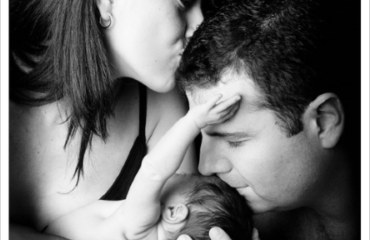As your bump pushes up against your lungs and you have extra weight to carry around, you may feel breathless.
Are you feeling clumsy these days? Your shifting centre of gravity, along with your loosened joints, can make for a lot of bumping into tables and tripping over your own toes. Unfortunately, there’s not much you can do about this. Find some cute flat shoes and slow down – people understand!
Leg cramps at night are common at around 29 to 32 weeks. You may find it hard to sleep because you can’t get comfortable. Try lying curled up on your side with a pillow between your legs and a cushion under your bump, to see if it feels more comfortable. You might also find you need to pass urine a lot.
As your pregnancy progresses, stretch marks may appear on your skin – especially on your abdomen. You may also see these pink, red, or white streaks on your hips, breasts, buttocks, or thighs.
Many creams and lotions on the market claim to prevent stretch marks or to keep them from spreading, but most experts agree that there’s not much you can do to avoid getting stretch marks.
Chalk it up to genetics – if your mother got them, you probably will, too. Still, applying creams to your belly certainly won’t hurt, and it may keep your skin from getting dry and itchy. (The good news is that stretch marks usually fade after birth).
If you are taking maternity leave from work, you need to tell your employer in writing at least 15 weeks before your baby is due. This is when you are 25 weeks pregnant. If your partner plans to take paternity leave (female partners can take paternity leave too) they also need to inform their employer at this time.
If you’re entitled to, you can claim Maternity Allowance from when you are 26 weeks pregnant. GOV.UK has information about benefits for families.
Think about your preferences for labour and birth, such as pain relief and the positions you would like to be in. You can save your birth plan online, and also print out a blank version to fill in and discuss with your midwife.
Your baby
Your baby’s beginning to respond to sounds, opening eyes seeing light and shadows even their brain wave pattern indicates that they are responding to their environment. Talking to your baby or listening to music is all good for your unborn and when born will recall your voice or familiar sounds.
The brain waves are also starting to show differences during sleep. These sleep cycles will become clearer and more distinct as they get closer to their birthday!
Your baby is gaining weight rapidly now! They may weigh about 2.3 pounds. And measure about the size of an aubergine. The lungs are also going through some development; blood vessels are forming for their first breath.
Your little one is also just starting to manufacture a substance, called a surfactant, which keeps the air sacs in her lungs from sticking together. The surfactant will allow them to breathe properly after birth.
Your baby is regularly passing urine into the amniotic fluid. Sometimes the baby may get hiccups, and you can feel the jerk of each hiccup.
By now your baby’s heart rate will have slowed to around 140 beats per minute. This is still considerably faster than your own heart rate, but very healthy for your little one.
Your baby’s brain, lungs and digestive system are formed, but not fully mature – they’ll spend the rest of your pregnancy developing, so that they work properly when your baby is born.
It will not be long before you get to see your little one for real! Let’s start getting prepared.
 LANGUAGE
LANGUAGE



You must be logged in to post a comment.